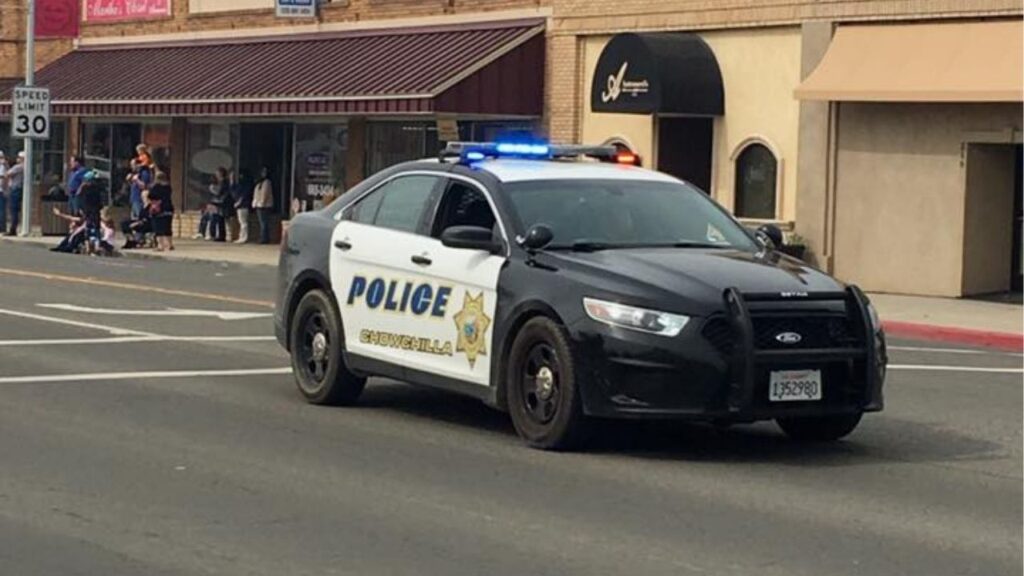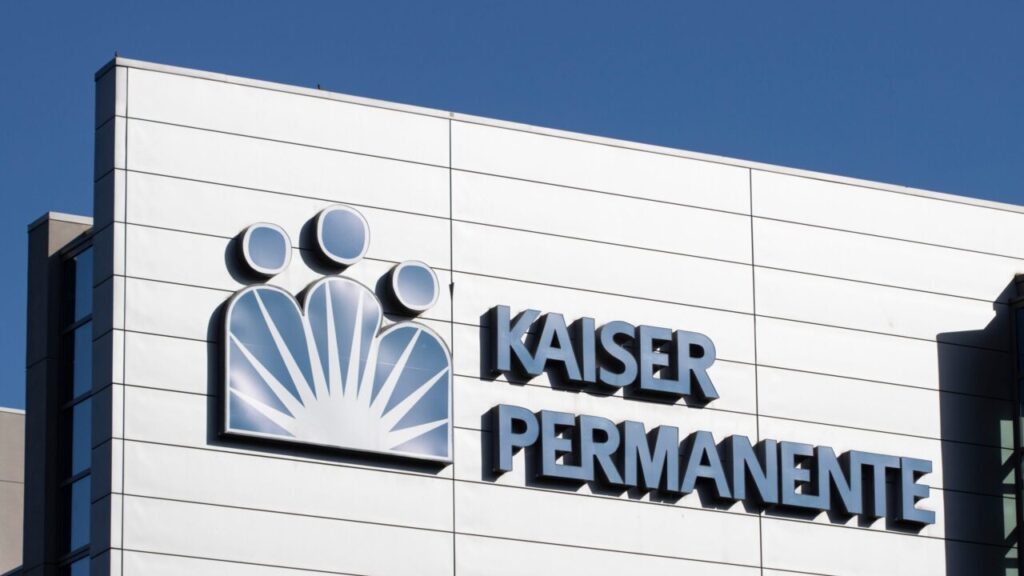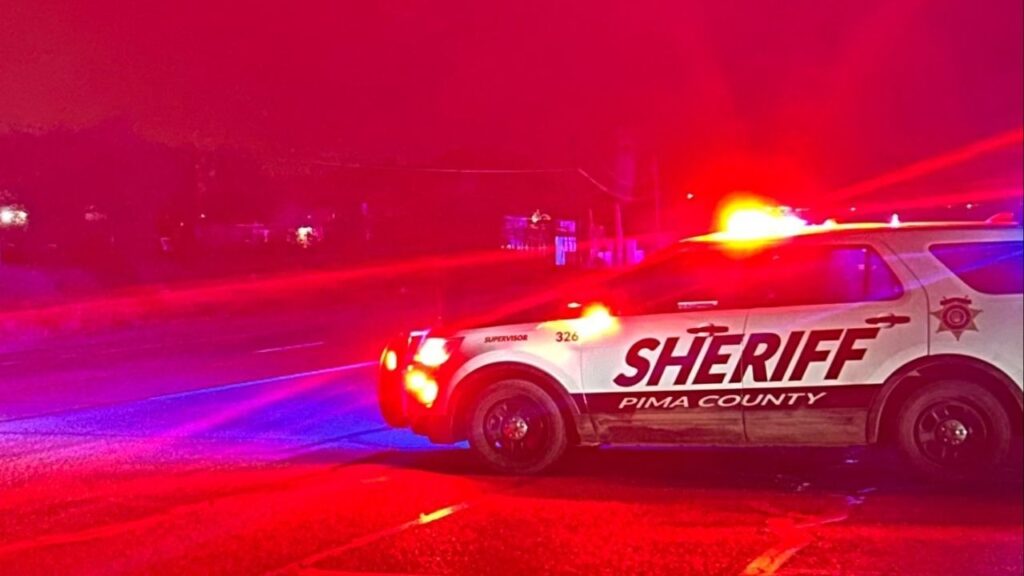Share
|
Getting your Trinity Audio player ready...
|
![]()
■Democratic Assemblymember Esmeralda Soria announces her Measure E opposition.
■New $1.4 billion county sales tax for Fresno State is on the March 5 primary ballot.
■Critics say university projects should be funded by state, voluntary donations.
A diverse political coalition joined Democratic Assemblymember Esmeralda Soria on Monday in announcing their opposition to a proposed countywide 0.25% sales tax increase to benefit Fresno State academics and athletics.
“This means that you and I will be paying a quarter of a cent more (per dollar) any time we make a purchase,” said Soria, a former Fresno City Councilmember who represents parts of Fresno, Madera, and Merced counties. “Measure E is a misguided tax increase on working families already struggling to make ends meet today.”
Appearing with Soria at a morning news conference outside Fresno State’s Valley Children’s Stadium were:
- Former U.S. congressman and 2024 state Assembly candidate George Radanovich
- Fresno City Councilmember Miguel Arias
- Former State Center Community College District trustee Eric Payne
- Kat McElroy, vice chair of the Libertarian Party of Fresno County
- Fresno County Democratic Party board member Dee Barnes
- Fresno County Democratic Central Committee Chair Ruben Zarate
- Former Fresno Unified School District trustee Brooke Ashjian, leader of the Measure E opposition PAC Guardians for Growth
The tax would raise an estimated $1.4 billion over 25 years for Fresno State academic and athletic projects.
“It’s a state university, it’s owned by the state of California,” Radanovich said. “And the people of Fresno County should not be burdened with a tax increase to pay for improvements that the state should be doing of its own.”
Soria also said that during California’s consecutive years of budget surpluses, backers of Measure E never approached her to secure state money for projects.
Said Payne: “I would issue an F grade” to the Measure E backers for their lack of transparency.
Patterson: Legislature Shut Down My Attempts to Fund Fresno State Projects
Backers of Measure E have identified more than $1.5 billion in projects that the sales tax could pay for. They have also pointed out the backlog of projects throughout the California State University system. The California Legislative Analyst’s Office estimated $6.5 billion in deferred maintenance throughout the system the CSU system can’t address.
Assemblyman Jim Patterson (R-Fresno), a vocal advocate for Measure E, told GV Wire after Monday’s news conference that the state refuses to fund CSU projects.
Patterson said he submitted a bill in 2022 to allocate $45 million for a new concert hall that was shut down in the Assembly Budget Committee. Patterson has also sought state and federal funding for the Fresno State Transportation Institute and Future Farm Project. Patterson also co-authored a bill to fund the CSU Agricultural Research Institute.
“In 2022, I put forward a $10 million ask specifically for improvements for Fresno State and it was outright denied,” Patterson said. “Every single year that the CSU system has asked for augmented funding from the state, I’ve supported that in the budget committee. And every single time that Fresno State has asked for augmentation, I have supported it as well.”
Measure E opponents say backers should be going to the state to fund university projects. Soria said that last year she secured $300 million for projects for her district.
“In the years past, if you guys recall, the state of California had a surplus. And I ask, where were all the Measure E supporters then?” Soria said. “Why did they fail to request and demand that the state give us our fair share for the university improvements? I will be very honest. Not one person supporting Measure E came to speak to me to advocate for state resources.”
Libertarians, Democrats Called Measure E ‘Regressive Tax’
Barnes with the Democratic Party and McElroy with the Libertarian Party both called the measure a tax that will be felt most by Fresno County’s poorest residents.
“Regressive sales tax means that the poorest pay as much or more as the wealthiest in the county,” McElroy said. “We need all the residents of Fresno County to know that this is not going to benefit them.”
Structure of Measure E Different Than Other School Funding, Tax Initiatives: Arias
Soria criticized Measure E backers for not doing community outreach to determine how new taxes — if approved by voters on March 5 — would be spent.
Arias said that project lists on school bonds typically prioritize projects and have a timeline for construction.
“They develop a list based out of a master facilities plan built by the public entity. And that master facility then prioritizes what buildings get built first,” Arias said. “Typically, the worst condition buildings get first…in this case, Fresno State and its master plan is not driving this tax initiative, it is the handful of people who wrote the initiative to benefit themselves.”
The largest donor to Measure E is a Kerman construction lift company, MEC Aerial Lift Platforms. The company has given $1.2 million to the campaign so far. Construction magnate Richard Spencer bought the company in 2002, according to trade publications, but has taken on Chinese investors in recent years.
The project list distributed by the Measure E campaign came from the Fresno State’s Administration and Finance Department, said Measure E campaign organizer Tim Orman.
Arias said under that Measure E, $150 million to upgrade the stadium could be prioritized.
The measure uses a seven-member oversight committee to decide which projects to fund. Five are selected by the Fresno County Board of Supervisors, one by Fresno State’s president, and another by the CSU Chancellor.
“The university doesn’t make the decisions on what they fix. It’s a group of five political cronies and insiders that will determine what buildings get fixed and when they get fixed, if they get fixed,” Arias said.
Watch: Fresno State President Explains Measure E
Taxpayers Would Pay Oversight Board as Much as $14 Million
Written into Measure E is the ability for oversight committee members to decide on their pay. Committee members could be paid up to $81,000 a year, unlike other tax initiatives. Throughout the measure’s 25-year lifetime, it could cost up to $14 million.
Patterson said the size and scope of Measure E warrants committee members deciding how to pay themselves.
“The size and scope of the oversight is going to be very precise, very time-consuming and it will have to be overseen with professional individuals who have seen large budgets and who have been involved in audits and holding bureaucracies accountable, just like Measure Z,” Patterson said.
Committee members of the Measure C transportation tax, the Measure Z zoo tax, the Measure B library tax, and the city’s Measure P parks tax are not paid.
Arias said that successful pro athletes who went to Fresno State should be donating to athletic projects.
“People who benefit from the university donate to it,” Arias said. “Where are the Carr brothers? Why haven’t they given a dime to fix the stadium? Where are all of the NBA superstars that we have generated locally that have benefitted? Instead, they’re asking my mom, a retired farmworker who’s paying for coffee at Walmart to pay more so that the next David Carr can come out of the stadium.”

RELATED TOPICS:
Categories

Pentagon to Send 200 Troops to Nigeria

FDA Refuses to Review Moderna Flu Vaccine

















